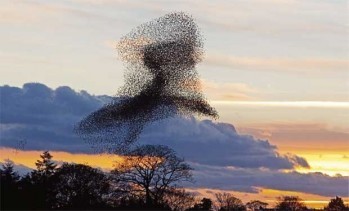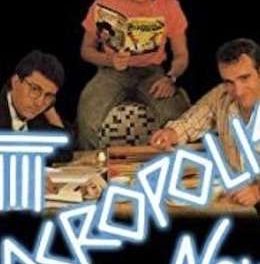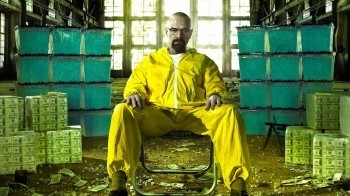How should the BBC make its huge archive public? This is the challenge that faces Peter Rippon, the newly appointed Editor of BBC Online Archive. Appointed a few months after the demise of the unmourned BBC Store in May, this appointment of a senior broadcaster shows a new seriousness of purpose in an area that seemed to be dying of neglect.
It is a long time since Greg Dyke announced that the BBC’s archival programmes belong to the licence fee payers who paid for them, rather than the institution that made them and guards them. BBC Store was an attempt to sell this content back to those ‘owners’, in the form of digital content that they could keep. It failed because, in the BBC’s words, “Since the appetite for BBC shows on SVOD [subscriber video on demand] and other third-party platforms is growing in the UK and abroad, it doesn’t make sense for us to invest further in BBC Store where demand has not been as strong as we’d hoped in a rapidly changing market”. In other words, the current appetite is to rent rather than keep.
But we all know that today’s SVOD rental is tomorrow’s broken link, as the mass removal of old movies from the increasingly misnamed Netflix dramatically demonstrated few years ago. There is so much material that owning downloaded files seems like digital clutter to anyone other than TV studies academics and hardcore fans. BBC Store offered 120,000 hours of material, but it was still driven by a Blockbuster vision of how to approach the digital consumer: just stack the shelves and they will browse, buy and carry away.
Well, they didn’t. And that’s because this model mis-sells the unique relationship that the BBC has with its audience. There is plenty of BBC material with which people have a unique and personal relationship. It is part of their lives. For people of a certain generation, there is an emotional connection with, for instance, Fanny Craddock Cooks for Christmas which is now available in the wonderfully eccentric and eclectic (but small) iPlayer Archive section. It is the ghost of Christmas Past, down to the gas cookers.
The trouble is that these personal relationships are impossible to anticipate. No-one can tell which episode of what played special role in someone’s life, or was transformative in some way. So why not reverse the process? Instead of anticipating what people might want from the archive, why not ask them directly? BBC Genome provides the first complete database of what the Radio Times listed as BBC programming, right from the start of radio. So finally there is a way for people to begin to locate the programmes that meant something in particular to them. So the BBC could offer to help people find the programmes from its archive that are particularly remembered.
Then, if they exist, the BBC could give them the programme, as part of the promotion of ‘My BBC’. This scheme would offer all licence fee a digital copy of one programme of their choice a year, entirely free of charge. It is an ideal way of reviving the licence fee as a personal contract with the BBC as an organisation in the public sphere, for everyone as someone (as Paddy Scannell so felicitously put it).
Some will of course ask for programmes that were not the BBC’s; many will ask for things that no longer exist. Many others will be trying to find a programme on which they or a family member once appeared. So researchers would have to go further than the bare Genome information to try to find it. Often those will be the populist ‘people shows’ that were rarely archived: the It’s a Knockouts or Generation Games. But there will be a substantial number of people for whom the BBC would nevertheless be able to deliver if not the programme, then some item from the written archives relating to it. The whole process would transform the relationship between the public and the BBC, reviving support for the licence fee in the face of its many opponents. The work involved would be more than justified by the long-term benefit in securing the organisation’s future.
John Ellis is Professor of Media Arts at Royal Holloway University of London. He leads the ADAPT project on the history of technologies in TV, funded by a €1.6 million grant from the European Research Council. He is the author of Documentary: Witness and Self-revelation (Routledge 2011), TV FAQ (IB Tauris 2007), Seeing Things (IB Tauris 2000) and Visible Fictions (1984). Between 1982 and 1999 he was an independent producer of TV documentaries through Large Door Productions, working for Channel 4 and BBC. He is chair of the British Universities Film & Video Council and also oversees the Royal Holloway team working on EUscreen. His publications can be found HERE.






